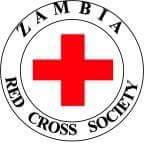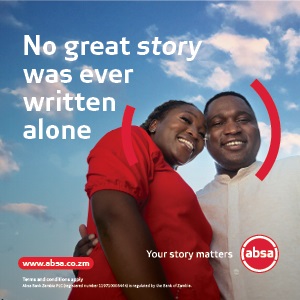
Website Zambia Redcross Society
The Zambia Red Cross Society (ZRCS): Humanitarian organization
Terms of Reference for End-line study
Background
Zambia experienced a third wave of the COVID-19 pandemic which started late May 2021, and which has proved to be more virulent than the other two waves the country experienced earlier since the beginning of the pandemic. The trajectory increases in the cases of covid had also a ripple effect in the demand for specialized treatment such as oxygen support, this wave stretched social-economical spheres, testing and treatment demands increased which led to stock outs of essential commodities. This wave also affected the human resource as more health care providers got infected or were put in isolation.
ZRCS with support from the NLRC joined other actors in the responding to the pandemic through implementing a Covid-19 response project supporting in 10 districts namely; Lusaka, Chipata, Choma, Chilanga, Chongwe, Kalulushi, Chingola, Kasama, Nchelenge and Mazabuka. The project focused on various key thematic (Main Pillars) areas as follows.
RCCE
WASH
Health
Community Engagement and Accountability
The key interventions of the project were:
Covid-19 awareness raising in the community and in-schools through radio, community address system, door to door and campaigns.
Demonstration of effective preventive measures e.g. effective hand washing, social distancing, cough / sneeze hygiene / protocol, etc.
Supporting Covid-19 vaccination roll out & routine immunization
Addressing vaccine hesitancy
Promotion of effective hygiene and health practices
Repair and maintenance of water facility, handwashing facilities
Management of Covid-19 signs and symptoms / care at home
Supporting routine immunization and other health services
Facilitate access, correct use of PPE (face masks) for first line responders.
Supporting of home base care interventions
The project responded to a combination of interventions related to Covid-19 infection prevention. The interventions include among others: awareness raising and mass sensitization, risk communication, promotion of hygiene and effective handwashing, promotion of Covid-19 prevention practices (mask wearing, physical/social distancing, recognition of Covid-19 symptoms) to facilitate testing and home based care), distribution of sanitizers, face masks, detergents, liquid soaps to vulnerable communities and first line responders, construction and maintenance of handwashing facilities in schools, public places, and health facilities, engaging community leaders in prevention efforts, and care at home as well as provision of safe water. The project also managed to train staff and volunteers on community engagement and accountability to facilitate community feedback and track rumours. Other interventions such as supporting routine immunization, and health promotion were integrated in the intervention to prevent other diseases in the community as health care service delivery was affected by the Covid-19 Pandemic.
General Overview of the endline evaluation
The aim of the endline evaluation is to get an in-depth understanding of what has been achieved with the Covid-19 response and to identify key features of success and lessons learned, and how to incorporate them in future public health, epidemic, and pandemic response programmes. In addition, the final evaluation and follow up is part of the accountability towards all involved, from the target population to the donor. To get an outsider perspective and an independent review, we deem it is important to conduct an external evaluation.
The purpose of the end line evaluation is to measure the achievements of the project with specific focus on project effect, outcomes and outputs based on project design documents, resource utilization, sustainability of actions, successes, challenges, and barriers to achievement of results and make relevant recommendations.
The Evaluator will focus on the project progress, assessing project realisation versus planning, identifying possible bottlenecks as well as adjustments that have been made (and their effect), considering monitoring results as well as the end line survey as an indication for the possible outcome of the project.
For the reflection component the Evaluator will analyse the findings to formulate the main success and challenges, failures, key lessons learnt, good practices, outcomes (including project intended and non-intended outcomes).
Overall objective of the endline survey
The final project evaluation aims to assess the progress made towards the achievement of the overall and specific objectives based on the project proposal, current data and direct observation; as well as to identify gaps and lessons learned.
SCOPE
The Covid-19 end-line survey will be carried out in the following project district Lusaka, Chipata, Choma, Chilanga, Chongwe, Kalulushi, Chingola, Kasama, Nchelenge and Mazabuka, 50% of the districts will be samples.
The evaluator will use the DAC principles and will make in-depth analysis of the strategies and approaches used in achieving the project result.
Sub-strategies (indicator progress and process):
Covid-19 Risk Communication
Covid-19 awareness raising in the community
Promotion of effective hygiene and health practices
Promotion of Covid-19 prevention practices: cough etiquette, handwashing, masking, physical distancing
Bore hole drilling, repair and maintenance of water facilities.
Support Covid-19 vaccination roll out & routine immunization
Addressing vaccine hesitancy
Support routine immunization and other health services impacted by Covid-19
Approaches:
Health
RCCE
WASH
Community Engagement and Accountability
Health Key deliverables
Evaluation inception report: The consultant will prepare an inception report before going into the technical mission and full data collection stage. It must detail the consultant’s understanding of what is being evaluated and why, showing how each process will be developed and how each evaluation question will be answered by way of: proposed methods, proposed sources of data and data collection/analysis procedures. The inception report must include a proposed schedule of tasks, activities and deliverables, designating the person with the lead responsibility for each task.
Presentation of preliminary findings to the ZRCS: Consultant will develop and deliver a presentation to the ZRCS team. That presentation must include the preliminary thoughts as debriefing of the methodology.
Draft evaluation report to ZRCS for which ZRSC and its partners will provide feedback.
Final evaluation report to ZRCS: The consultant will submit the final report with comments addressed and must meet the minimum requirements specified in this TOR. Consultant(s) must accompany the final report with in an appropriate format, which should include lessons learnt, a matrix with comparison of baseline and endline indicators for dissemination among various levels of stakeholders .
The consultant shall submit and present a summary in PowerPoint form to ZRCS
Presentation of the Evaluation report shall be compliant with OECD-DAC standards with the following presentation format.
Executive summary
Methodology
Findings (short description per sub-strategy and approach)
Analysis (per criteria)
Lessons learned
Recommendations
Annexes: tools, lists of abbreviations, persons met, key documents, map project area.
Skills and Experiences Required
The consultant must be able to demonstrate the following skills, knowledge and experience:
0.1 Education
Master’s degree in Public Health, Development studies, Demography, Population studies or related.
0.2 Experience
At least 5 years’ experience in public health
At least 5 years’ experience conducting evaluations of projects.
Previous assignments in conducting endline studies and evaluations for public health projects
Experience with participatory assessment
Experience with qualitative and quantitative methods
Knowledge or expertise in statistical data analysis software in the case of conducting the endline survey
Experience conducting similar works with Red Cross (RCRC) is an advantage
0.3 Skills
Fluency in English
Ability to write concise, yet comprehensive reports
Ability to meet deadlines
Knowledge of mobile data collection.
Competences in qualitative and quantitative data software is desirable.
0.4 Knowledge
Technical knowledge in public health and Community Based Surveillance.
Proposal by consultant to ZRCS
The consultant is expected to hand in the following in view of selection process on the last day of the advert which is the 7th day to ZRCS through KOBO link.
Technical offer/ Expression of Interest
Technical proposal describing how evaluation should be carried out.
Financial proposal (consultancy fees)
List of the previous studies/research developed by her/him, including the link to be able to review them (if this is already included in the CV, it wouldn’t be necessary to attach it separately).

